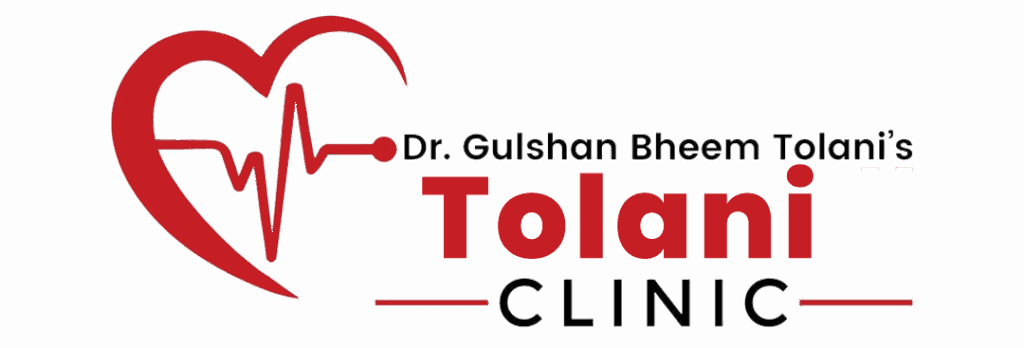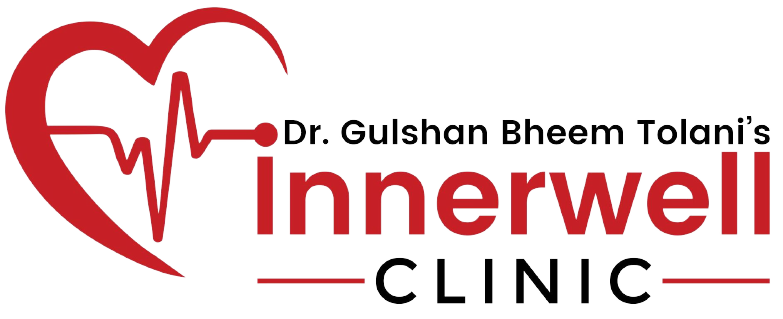Thyroid Disorder
Thyroid Treatment Doctor in Nashik
Dr. Gulshan Tolani
Thyroid Disorder
What is the thyroid gland?
The thyroid gland is a small, butterfly-shaped gland that is located in the front of the neck. It produces hormones that control the way the body uses energy. These hormones affect nearly every organ in the body and control many of your body’s most important functions, including:
Metabolism: The thyroid hormones help to regulate the body’s metabolism, which is the process of converting food into energy.
Growth and development: The thyroid hormones are essential for growth and development in children and adolescents.

Heart rate: The thyroid hormones help to regulate the heart rate.
Blood pressure: The thyroid hormones help to regulate blood pressure.
Body temperature: The thyroid hormones help to regulate body temperature.
Mood: The thyroid hormones can affect mood.
Weight: The thyroid hormones can affect weight.
Sleep: The thyroid hormones can affect sleep.
Fertility: The thyroid hormones can affect fertility.
Pregnancy: The thyroid hormones are essential for a healthy pregnancy.
Bone health: The thyroid hormones help to keep bones strong.
What are thyroid disorders?
Thyroid disorders encompass a range of conditions that impact the thyroid gland, categorized into two primary types:
Hypothyroidism: This refers to a state where the thyroid gland fails to generate an adequate amount of thyroid hormone.
Hyperthyroidism: This denotes a condition where the thyroid gland overproduces thyroid hormone.
What are the symptoms of thyroid disorders?
The symptoms of thyroid disorders can vary depending on the type of disorder and the severity of the condition. Some common symptoms of thyroid disorders include:
Hypothyroidism:
Fatigue
Weight gain
Cold intolerance
Constipation
Dry skin
Hair loss
Slowed heart rate
Depression
Hyperthyroidism:
Weight loss
Heat intolerance
Increased heart rate
Sweating
Shakiness
Irritability
Anxiety
Difficulty sleeping
How are thyroid disorders diagnosed?
Thyroid disorders are diagnosed with a physical exam and blood tests. The blood tests will measure the levels of thyroid hormones in the blood
How are thyroid disorders treated?
Thyroid disorders are treated with medication, surgery, or radiation therapy. The type of treatment that is best for you will depend on the type of disorder you have and the severity of your condition.
Medication: Medication is the most common treatment for thyroid disorders. Medications are available to replace the thyroid hormone that is not being produced by the thyroid gland (for hypothyroidism) or to reduce the amount of thyroid hormone that is being produced by the thyroid gland (for hyperthyroidism).
Hypothyroidism: Medications used to treat hypothyroidism include levothyroxine (Synthroid, Levoxyl) and liothyronine (Cytomel).
Hyperthyroidism: Medications used to treat hyperthyroidism include methimazole (Tapazole) and propylthiouracil (PTU).
Surgery: Surgery may be an option for people with thyroid cancer or severe hyperthyroidism that does not respond to medication. The surgery may involve removing part or all of the thyroid gland.
Radiation therapy: Radiation therapy may be an option for people with thyroid cancer. Radiation therapy is used to kill cancer cells.
Living with a thyroid disorder
Living with a thyroid disorder can be challenging, but it is important to remember that there are effective treatments available. With proper treatment, most people with thyroid disorders can live normal, healthy lives.
Here are some tips for living with a thyroid disorder:
• Take your medication as prescribed by your doctor.
• See your doctor regularly for checkups.
• Be aware of the symptoms of your disorder and report any changes to your doctor.
• Make lifestyle changes to improve your overall health, such as eating a healthy diet, exercising regularly, and getting enough sleep.
• Join a support group or online forum for people with thyroid disorders.


